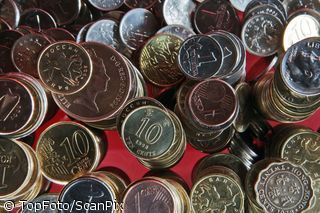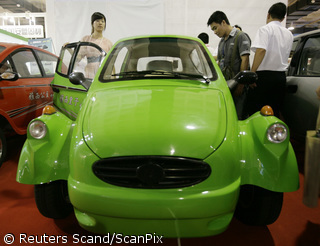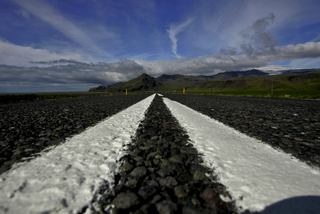EASTERN EUROPE AND KAZAKHSTAN: NEW HORIZONS OF COOPERATION
Published:
1 November 2003 y., Saturday
In 2004 ten of Eastern and Central European countries (ECE) will enter the European Union; it will be record quantity of new members for all the EU history.
Positive and evident experience of Single Europe members urges on potential members to meet a number of necessary requirements for of the Western-European investments inflow and therefore possible increase of living standards at present or in prospects.
The entering of these countries to the European Union can benefit not only them, but also traditional partners of Central and Eastern Europe such as Kazakhstan. Now available investments inflow from the EU members and recent the Brussels grants allowed to recover the some economic sectors and to increase the export level with other states, including Kazakhstan.
For example, the purchase by German “Volkswagen” rather unprofitable in the beginning of 1990s automobile factory “Skoda” in Czech Republic and some affiliated companies in Slovakia. The company has already created number of dealers in Republic of Kazakhstan. Working on prospect, it often signs leasing agreements with business partners.
The European companies investments to Polish economy allowed to develop hi-tech manufactures: computer production, video-audio techniques. Due to the Western technology and the low cost price the goods are attractive not only in the CIS, but in Europe.
In Hungary cooperation of automobile factory «Ikarus» with Swedish company "Volvo" allowed to improve bus manufacture. The trade mark is traditionally well-known in the former Soviet republics.
The European partners’ investments to Romanian economy were more helpful than for other Eastern European states. After the disintegration of the single economic market of socialist countries the state lost not only in economic, but also in political sphere.
Mainly due to the Western help Romania managed to support enterprises and keep workplaces, and that in turn it lowered social excitements and interethnic collisions. France, the active and developed EU member invested Romanian oil sphere that allowed to improve oil and gas refining and to increase hydrocarbons import volume from the Caspian sea and Siberia. Romania considers Kazakhstan as the main oil partner in the CIS except Russia. According to Romanian government the Caspian oil should be transported to Europe via Romanian sea ports in Black Sea. That was the aim of Romanian President Emil Constantinescu’s visit to Kazakhstan in the end of 1990s.
Investments to Slovenia and Bulgaria allowed to increase traditional production – the household chemical goods, utensils, pharmaceutics, goods which are popular in our country. Slovenian pharmaceutical giant – company "KRKA" opened number of joint ventures in Kazakhstan, creating workplaces for our citizens.
The Baltic States broke a record in attracting investments among the Eastern European countries. This allowed to quickly pass unpleasant, but necessary transformational processes in economic and political sphere. Finland and Germany created many joint ventures in Estonia and Latvia, thus improved competitiveness of the Baltic goods, many of which are exported mainly to the CIS countries. For example, in Latvia the Riga diesel factory delivers locomotives and cars, qualitative and inexpensive diesel stations which are attractive for the CIS countries. There are a lot of joint ventures both in Kazakhstan and the Baltic States. The activity of association «KazBalt» is very beneficial for the partners.
Moreover, in New Europe delegates from the Eastern European states will have influence in the decision-making process. It is important to pay attention to strengthening cooperation with all Eastern European countries.
Šaltinis:
KAZINFORM
Copying, publishing, announcing any information from the News.lt portal without written permission of News.lt editorial office is prohibited.
The most popular articles
 The European Commission today concluded on the existence of excessive deficits in Cyprus, Denmark and Finland and recommended deadlines for their correction to the Council.
more »
The European Commission today concluded on the existence of excessive deficits in Cyprus, Denmark and Finland and recommended deadlines for their correction to the Council.
more »
 Over 2000 former construction workers in Spain and nearly 600 ex-employees of Irish glass company Waterford Crystal and its suppliers will receive a total of €11 million in aid from the EU Globalisation Adjustment Fund to help with training, business start-ups and job guidance under plans agreed by MEPs and the Council of Ministers.
more »
Over 2000 former construction workers in Spain and nearly 600 ex-employees of Irish glass company Waterford Crystal and its suppliers will receive a total of €11 million in aid from the EU Globalisation Adjustment Fund to help with training, business start-ups and job guidance under plans agreed by MEPs and the Council of Ministers.
more »
 MEPs on Tuesday decided six top priorities and a number of additional key issues for the upcoming negotiations on the 2011 budget.
more »
MEPs on Tuesday decided six top priorities and a number of additional key issues for the upcoming negotiations on the 2011 budget.
more »
 The EU-China Science and Technology Week starts today at the heart of World Expo Shanghai.
more »
The EU-China Science and Technology Week starts today at the heart of World Expo Shanghai.
more »
 European Climate Action Commissioner Connie Hedegaard and European Investment Bank President Philippe Maystadt agreed on Monday to explore a joint climate finance initiative for developing countries as part of the European Union commitment made at the UN climate conference in Copenhagen last December.
more »
European Climate Action Commissioner Connie Hedegaard and European Investment Bank President Philippe Maystadt agreed on Monday to explore a joint climate finance initiative for developing countries as part of the European Union commitment made at the UN climate conference in Copenhagen last December.
more »
 Sustainability, competitiveness and security of energy supply: the three pillars to the foundation of a new EU energy community.
more »
Sustainability, competitiveness and security of energy supply: the three pillars to the foundation of a new EU energy community.
more »
 EU Trade Commissioner Karel De Gucht and Palestinian Minister of National Economy Hasan Abu-Libdeh today discussed measures to enhance EU-Palestinian bilateral trade relations and to facilitate trade of Palestinian products to EU markets.
more »
EU Trade Commissioner Karel De Gucht and Palestinian Minister of National Economy Hasan Abu-Libdeh today discussed measures to enhance EU-Palestinian bilateral trade relations and to facilitate trade of Palestinian products to EU markets.
more »
 Some of the most innovative and exciting transport research projects funded by the EU are being showcased at the Transport Research Arena (TRA) in Brussels this week.
more »
Some of the most innovative and exciting transport research projects funded by the EU are being showcased at the Transport Research Arena (TRA) in Brussels this week.
more »
 Nowadays we rely heavily on satellite positioning and navigation, but the only available technology is American.
more »
Nowadays we rely heavily on satellite positioning and navigation, but the only available technology is American.
more »
 The European Commission will reveal how it aims to revamp its transport networks policy in response to the challenges of the 21st century at a conference dedicated to the Trans-European Transport Network (TEN-T) in Zaragoza on 8 and 9 June.
more »
The European Commission will reveal how it aims to revamp its transport networks policy in response to the challenges of the 21st century at a conference dedicated to the Trans-European Transport Network (TEN-T) in Zaragoza on 8 and 9 June.
more »